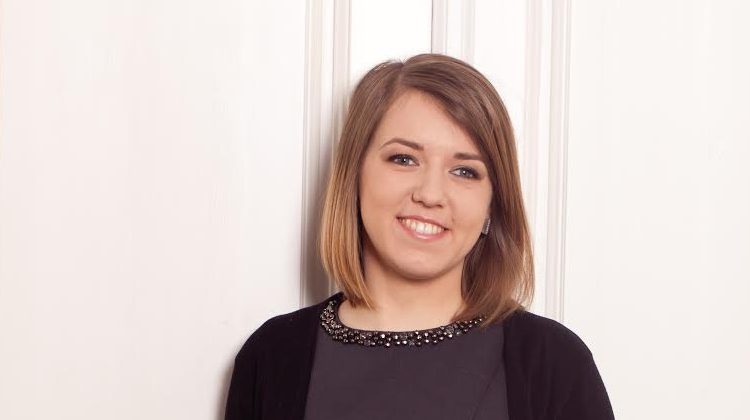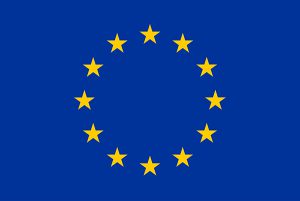
Campaign for Decriminalisation in Lithuania: Interview with Laura Bliujiene
The Drugreporter video team helped Coalition I Can Live, a Lithuanian drug policy reform NGO to launch a media campaign for the decriminalisation of drug use. Watch the movie we produced about drug policies in Lithuania – and read this interview with Laura Bliujiene, a lawyer working for the NGO!
Drugreporter:A few weeks ago the Lithuanian parliament rejected a proposal to reform drug laws. Can you explain how the current drug laws sanction drug offenders and how this reform could change things?
Laura Bliujiene: As of January 2018, possession of any amount for personal use is a criminal offence and a prison sentence is applied. The amendments to the criminal code that had been proposed would have removed criminal punishment for possession of small amounts for own use, and the sanctions would have been moved from the criminal code into the administrative code. This would not have addressed the diversion from punishment to comprehensive help for people who use drugs but would have been a big step towards a more balanced and evidence-based drug policy in Lithuania.
Have you seen any negative impact of the 2017 restrictions in terms of how many people are punished for drug offences and the severity of the punishments they receive?
During 2017 1033 pre-trial investigations were launched, 605 of which were completed by sending them to court. The courts decided on as many as 848 convictions. This is quite a large number of people who have received criminal punishment for possession of small amounts with no intent to sell. It is simply redundant criminalisation, which limits the possibilities of law enforcement to effectively use resources for the clarification of more serious crimes.
When we visited Lithuania last year we produced video clips with celebrities who were speaking out against the criminalisation of drug users. You used these videos in your campaign to support decriminalisation. What was the public reception to these videos?
These videos were extremely positive! They broke the all time records on our Facebook. Even during all interviews with opinion makers and other well-known people in Lithuania we were very happy about their thoughts and understanding of the need to decriminalise. Several opinion leaders shared these videos on their social networks, so one video reached around 8000 views! We got very positive and supportive comments from the society.
Watch this video with English subtitles about Lithuanian drug policy reform!
It must have been disappointing for you to see that the reform was rejected. What are your plans, do you see any chance that the drug laws can be changed for good in the foreseeable future?
Yes, it is very disappointing. But on the other hand, we see that our decriminalisation campaign was quite successful in the sense that we succeeded in changing the opinion of several Lithuanian Parliament members and other key decision makers. During the voting at the Parliament only one party voted against the change which is a better outcome than during a similar vote half a year ago. Unfortunately, this was the majority party at the Parliament. So we have a clear vision of which party is our main subject for further advocacy activities.
Let’s talk about the public health side of drug policies. Lithuania witnessed a rapidly growing HIV epidemic among injecting drug users ten years ago but it has been declining since. How do you see the current trends? Are there any lessons learnt?
Unfortunately, in the last two years Lithuania is witnessing another period of rapid growth of HIV prevalence among PWIDs, especially in prisons. It is at least partly due to the decline in needle and syringe exchange programs since the last international donor exited in 2011. The situation in prisons is dramatic and there have been almost no positive developments there in terms of evidence-based prevention measures despite the alarming numbers.
Lithuania was the first former Soviet country to introduce harm reduction programs. Is the country still a good example when it comes to access to harm reduction?
The harm reduction services in Lithuania started more than 20 years ago. However, it is unfortunate that the good example from the past did not grow in coverage so progressively. We can be glad that harm reduction and low threshold services in Lithuania are well regulated by legal acts, but the regulation does not translate into increased access to these services. The coverage of OST and NSP remains low and has been declining. I can highlight two main issues at the moment: insufficient access to NSP, and low funding. There is no single financing practice – in some municipalities, NSP is historically financed by the municipality, with a tiny bit coming from the state budget. The state budget allocates the total of 40,000 Euros per year, which is half of the minimal annual budget of one NSP site in a large city. Overdose prevention is another topic where numbers of deaths is high and rising, but naloxone is not available.
How do you see the main challenges ahead of drug policies in Lithuania?
At first, we need to have a very strong national drug policy program with a clear action plan. Right now the Drug, Tobacco and Alcohol Department together with other responsible agencies and NGOs are working on it. Secondly, we have to change our law and decriminalise at least the possession of small amounts of drugs for personal use. Finally, a referral system from punishment to comprehensive services should be launched and the services need to be developed. These efforts will require work and investments, but first of all there should be political will.
Istvan Takacs and Peter Sarosi


 The video was produced by the Rights Reporter Foundation. Co-funded by the European Union. This projects has been funded with the support from the European Commission. This video reflects the views only of the author, and the European Commission cannot be held responsible for any use, which may be made of the information contained therein. Funded in the “Drug Policy Impact Assessment for Change in Central and Eastern Europe (Drug Policy 1A)” project.
The video was produced by the Rights Reporter Foundation. Co-funded by the European Union. This projects has been funded with the support from the European Commission. This video reflects the views only of the author, and the European Commission cannot be held responsible for any use, which may be made of the information contained therein. Funded in the “Drug Policy Impact Assessment for Change in Central and Eastern Europe (Drug Policy 1A)” project.
